Obama Wins Second Debate With His Record, Not His Vision
President Obama may have saved his campaign, but it's still not clear after Tuesday night's debate what he would do with a second term.President Obama may have saved his campaign, but it's still not clear what he would do with a second term.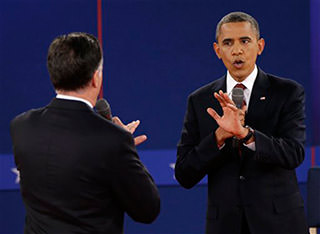
President Barack Obama woke up and came back in the nick of time in the second presidential debate Tuesday night, making clear the wide differences between himself and Gov. Mitt Romney.
Polls showed the race tightening up after the president’s weak showing in the first debate. But this time, in a town hall setting at Hofstra University in New York, Obama was the attacker. He pressed Romney hard for details on the former governor’s vague five-point plan to revive the economy. Romney, except to promise to create more jobs and to cut taxes, had no concrete answer. Obama wasn’t exactly clear where he would steer us in his second term, but he took pride in his record and held his rival to promises made during the reactionary Republican primaries. Once again, Romney insisted that he was focused on the middle class, but the president effectively dismantled the Romney plan to cut taxes for the wealthy and hope the proceeds filter down to the middle class and the poor — a strategy that has failed in the past.
In Romney’s weakest moment, he tried to attack Obama on Libya, saying that after the killing of four American diplomats in Benghazi, the president flew to Las Vegas and Denver for fundraisers. He said, “This calls into question the president’s whole policy in the Middle East.” Romney said that “it took a long time” for the American people to be told that the incident in Libya was a terrorist attack.
In words reflecting his chilly anger, Obama said that to suggest that “anybody on my team would play politics or mislead is offensive.” The president maintained that he referred to the assault as an act of terror the day after it happened. Romney questioned whether the president had said that. “Read the transcript,” Obama replied.
Moderator Candy Crowley interrupted to say that Obama indeed had called it an “act of terror” when he spoke of the attack in the Rose Garden the day after. “Could you say that a little louder, Candy?” the president joked. Actually, what Obama said in the Rose Garden was, “No acts of terror will ever shake the resolve of this great nation, alter that character or eclipse the light of the values that we stand for.”
The debate was entertaining theater. The two men frequently rose from their stools and would go over to the women and men asking questions from the audience. Occasionally, they circled each other, hurling figures and replies as if they were lawyers in a courtroom. At one point, they were face to face.
What was different in this debate from the first one was the intensity with which Obama demanded answers.
Romney, as he has in the past, insisted that his tax plan would reduce rates, but would leave the top earners paying 60 percent of the taxes. While taxes would be cut, the lost revenue would be made up by reduced income tax deductions.
Obama pointed out that it didn’t add up. He said that when Romney was in the venture capital business, if someone had come to him with a plan to “spend seven or eight trillion dollars, but we can’t tell you how we will pay for it,” Romney would have rejected the proposal. “When you ask what loopholes he will close, he can’t tell you,” Obama said. Romney offered no specifics except for cutting PBS and Big Bird and reducing federal spending for Planned Parenthood, the president said.
“Of course they add up,” replied Romney. But other than citing his experience in business, as governor of Massachusetts and as head of the Salt Lake City Olympics, he did not explain how.
Obama brought up the taped comment of Romney at a fundraiser in which he seemed to write off 47 percent of the people. “I believe Governor Romney is a good man,” Obama noted. “But when he said behind closed doors that 47 percent of the country ‘consider themselves victims,’ he was talking about veterans, combat soldiers, students and low-income working people.”
Yet Obama left many questions unanswered.
He spoke of opening up community college slots for students who need the education to compete in the revived manufacturing economy he envisions. But he didn’t say how he would fund these struggling schools or how he would bring more manufacturing back to America.
He called for the wealthy “to pay a little bit more,” but didn’t say how much. And when Romney criticized Obama for failing to enact immigration reform in his first term, the president could not clearly explain why.
Obama’s performance may have saved his campaign. But the debate, while extending over its hour and a half limit, left this viewer — and probably many others — wishing the president had given us more information and vision.
Your support matters…Independent journalism is under threat and overshadowed by heavily funded mainstream media.
You can help level the playing field. Become a member.
Your tax-deductible contribution keeps us digging beneath the headlines to give you thought-provoking, investigative reporting and analysis that unearths what's really happening- without compromise.
Give today to support our courageous, independent journalists.

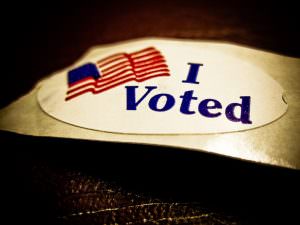
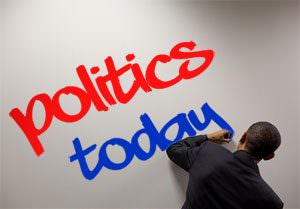
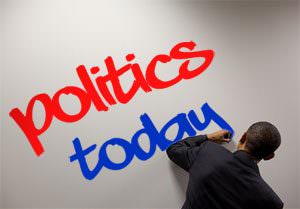
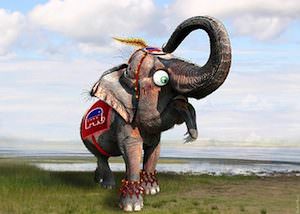
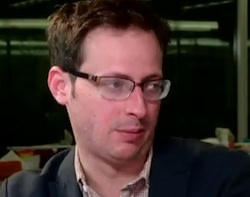
You need to be a supporter to comment.
There are currently no responses to this article.
Be the first to respond.